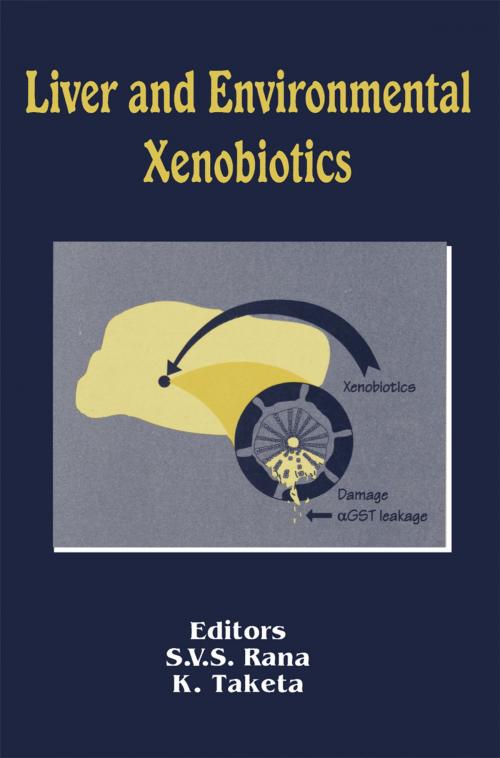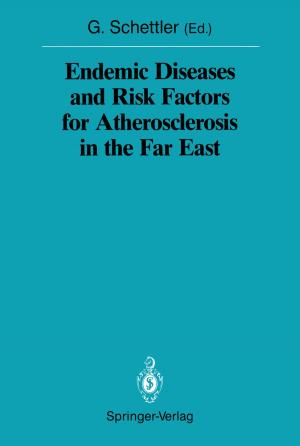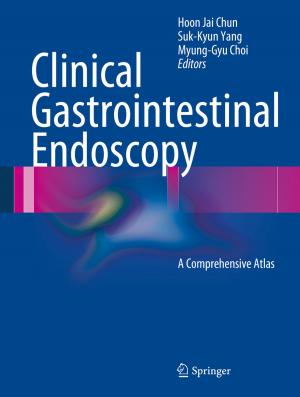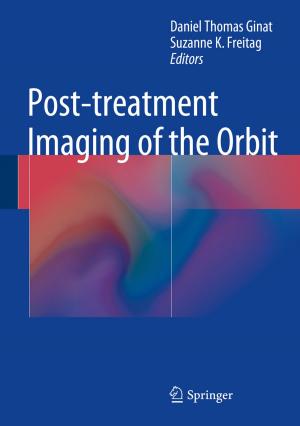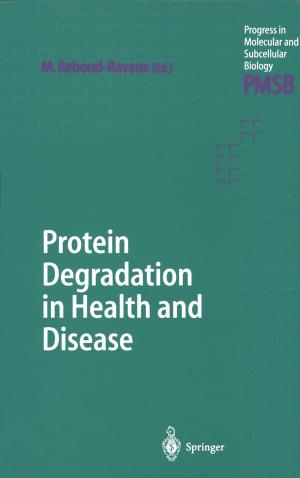Liver and Environmental Xenobiotics
Nonfiction, Health & Well Being, Medical, Specialties, Pathology, Internal Medicine, Gastroenterology| Author: | ISBN: | 9783662123850 | |
| Publisher: | Springer Berlin Heidelberg | Publication: | November 11, 2013 |
| Imprint: | Springer | Language: | English |
| Author: | |
| ISBN: | 9783662123850 |
| Publisher: | Springer Berlin Heidelberg |
| Publication: | November 11, 2013 |
| Imprint: | Springer |
| Language: | English |
The general populations are incidentally exposed to a wide variety of xenobiotics as a consequence of the pollution of the environment by industrial and agricultural chemicals. Xenobiotics entering the animal will undergo one or more of the following fate: (a) elimination unchanged, (b) metabolism by enzymes, (c) spontaneous chemical transformation and (d) remain unchanged in the body. The actions of xenobiotics on the body exhibit certain specificity depending upon the compound's chemical structure and reactivity. Since the processes of metabolism change these chemical properties ofaxenobiotic, bewildering number of reactions continue to pose new challenges to toxicologists and pharmacologists. It necessitates periodic and precise revision of the subject. This book contains invited contributions from learned colleagues that offer an excellent survey of and profound insight into the disposition and metabolism of a few environmentally and industrially significant xenobiotics. The topics range from an assessment of drug metabolising enzymes in the liver, DNA damage by reactive oxygen species generated by pesticides, role of NO in liver injury, hepatotrophicgrowth factor in liver regeneration, extracellular matrix in the liver, oncogene expression in liver injury, the hepatocarcinogenesis to oxidative stress and undifferentiated gene expression. Detailed analysis of the validity of liver function tests has been included. Last Chapter addresses the problem of apoptosis, which plays a key role in the signal transduction system of xenobiotics-induced liver injury. The reader should appreciate that overall exposure to this field is expanding at a rapid pace and selections had to be made.
The general populations are incidentally exposed to a wide variety of xenobiotics as a consequence of the pollution of the environment by industrial and agricultural chemicals. Xenobiotics entering the animal will undergo one or more of the following fate: (a) elimination unchanged, (b) metabolism by enzymes, (c) spontaneous chemical transformation and (d) remain unchanged in the body. The actions of xenobiotics on the body exhibit certain specificity depending upon the compound's chemical structure and reactivity. Since the processes of metabolism change these chemical properties ofaxenobiotic, bewildering number of reactions continue to pose new challenges to toxicologists and pharmacologists. It necessitates periodic and precise revision of the subject. This book contains invited contributions from learned colleagues that offer an excellent survey of and profound insight into the disposition and metabolism of a few environmentally and industrially significant xenobiotics. The topics range from an assessment of drug metabolising enzymes in the liver, DNA damage by reactive oxygen species generated by pesticides, role of NO in liver injury, hepatotrophicgrowth factor in liver regeneration, extracellular matrix in the liver, oncogene expression in liver injury, the hepatocarcinogenesis to oxidative stress and undifferentiated gene expression. Detailed analysis of the validity of liver function tests has been included. Last Chapter addresses the problem of apoptosis, which plays a key role in the signal transduction system of xenobiotics-induced liver injury. The reader should appreciate that overall exposure to this field is expanding at a rapid pace and selections had to be made.
